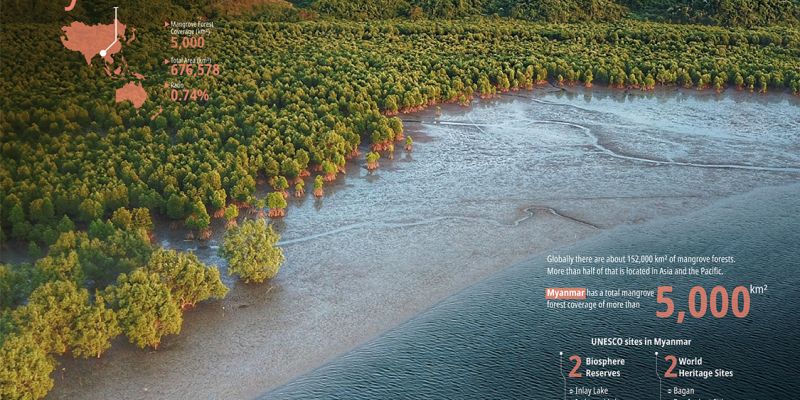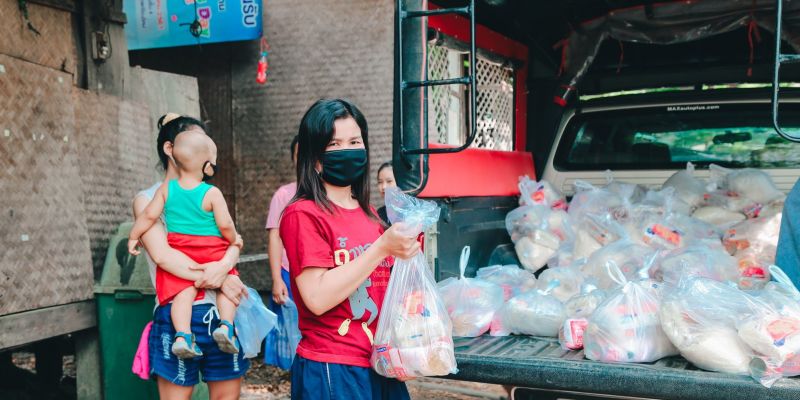Together for Peace (T4P) - Webinar III: Living Well with Super Diversity, Tuesday, 9 March 2021
Building and sustaining positive peace in the Asia-Pacific requires a holistic approach to resolve and redress unjust structural social, political, cultural and economic factors to build stability, prosperity, harmony and progress. ‘Positive peace’ in this context is not just the absence of conflict, or ‘negative peace’ lacking durability, but the presence of justice and equality within and between societies.
On 30 and 31 March 2021, UNESCO Asia and the Pacific Regional Bureau for Education will be hosting the ‘Together for Peace (T4P) Regional Dialogue on the role of education in building a peaceful and sustainable future in Asia-Pacific’. As a leadup to this event, a series of three webinars will explore different dimensions of positive peace and solicit engagement from UNESCO National Commissions, development partners, education policymakers, teachers and school staff, and the general public.
The webinars will be organized around three themes that relate to positive peace. Those are:
- 27 January – Transformative Pedagogies for Peace
- 16 February – Building Ethical and Sustainable Relations between Humanity and nature
- 9 March – Living well with Super Diversity
Living well with Super Diversity
Over the past several decades, there is an increasing recognition and acknowledgement among peoples and nations worldwide of the urgent challenges of living ethically and sustainably on a shared planet. Building a peaceful world must recognize that we are now living in global, national and local contexts where societies and communities are hyper connected, where mobility is accelerating, and where encounters with diversity are more salient in everyday realities and across social media and digital platforms. Such extreme diversity, if not acknowledged properly by the political and socio-economic systems in place, including education and the media, can unfortunately lead to misunderstandings, exclusion, marginalization, and violence.1
Peacebuilding hence requires a deep understanding and respect of cultural identities and its interaction with social, economic and political factors. Enacting proactive approaches to living well with diversity is critical if we are to prevent and mitigate against hate speech, political violence, discrimination and social harms. The COVID global pandemic has shown how existing attitudes among citizens, institutional policies and social practices have led to increased discrimination and even racism directed towards peoples of certain ethnicities and cultural ancestry who are scapegoated for “spreading” the SARS-COV-2 coronavirus.
Creating platforms for intercultural and intergenerational dialogue and exchange is important to build empathy and understanding across our diverse societies. This can be tackled at many levels and through many vehicles from young people accessing digital platforms through to heritage educators and the media.
Culture and heritage in all its diversity and different forms is a valuable common good for creative innovation, well-being, dialogue, income generation, reconciliation and sustainability. Yet culture is increasingly used as a form of international rivalry and conflict, resulting in the phenomenon, which the media has dubbed the so-called ‘culture wars’. In looking deeper at histories and cultural practices in Asia and the Pacific, the importance of ensuring that all learners gain an appreciation of cultural diversity as part of quality education is critical in achieving sustainable development.
Media, including mass media like radio and television, and social media play a key factor in shaping people’s perceptions, opinions and behaviours, as well as providing spaces for the public to exchange their ideas. Media have the immense power to educate, showcase good practices and instigate positive change in the attitudes and mindsets of wide audiences. Therefore, it is essential to introduce and mainstream in media organizations constructive journalism and promote positive examples of crossing cultural, religious, ethnic barriers for peaceful coexistence. In addition, media and information literacy should be emphasised for social media users.
Objectives
The webinar aims to:
- highlight promising practices of education on cultural diversity and media and information literacy as key tools for building and sustaining positive peace, and
- engage educators and education policy makers in building positive peace through education on cultural diversity and media and information literacy.
Expected Outcomes
The summary of the discussions will feed into the T4P Outcome Document which will propose concrete actions to promote education on cultural diversity and media and information literacy, and integrate them into education policies and practices in Asia and the Pacific.
Audience
The audience for the webinar will be UNESCO National Commissions, UN agencies, Embassies, educators and education policymakers, donor agencies, students and youth, and the media.
Programme Webinar III- Living well with Super Diversity
|
10:45-11:00 |
Registration and joining ZOOM - Waiting Room: UNESCO Memory of the World Women in History slideshow |
|
11:00-11:10 |
Opening remarks
|
|
11:10-11:25 |
Keynote speech: Living well with super diversity: importance of education to cultural diversity and media literacy education
|
|
11:25-12:30 |
Panel discussion: Good practices of education for intercultural dialogue, and media and information literacy
Moderator: Dr Sue Vize, Regional Adviser for Social and Human Sciences |
|
12:30-12:40 |
Summary of the discussions
|
|
12:40-13:20 |
Way forward: Perspectives for integrating media and information literacy and intercultural dialogue into education policies and plans
Moderator: Ms Misako Ito, Advisor for Communication and Information, UNESCO Bangkok |
|
13:20-13:30 |
Closing remarks
|
|
13.30-13.40 |
UNESCO Memory of the World Women in History slideshow |
All times listed are for Bangkok
Speakers
Modality
The webinar will be conducted via zoom. Registration can be completed by following the link below:
https://unesco-org.zoom.us/webinar/register/WN_bdaQSoMbQLS1lzzESjH3jg
After registering, you will receive a confirmation email containing information about joining the webinar.
Webinar Recorded
Presentations
Living Well with Super Diversity: Importance of Education to Cultural Diversity and Media Literacy Education (Laura Yerekesheva)
A Narrative (In) Peace (Bushara Ebadi)
The Silk Roads Dialogue, Diversity and Development (Mehrdad Shabahang)
Good Practices of Education for Intercultural Dialogue (UNESCO Chair "Intercultural Dialogue in Modern World") (Munzifakhon M. Babadjanova)
Integrating media and information literacy (MIL) and intercultural dialogue into education policies and plans (Hyun Mook Lim)
Perspectives for Integrating Media and Information Literacy and Intercultural Dialogues into Education Policies and Plans (Duriya Amatavivat)
Perspectives for integrating media and information literacy and intercultural dialogue into education policies and plans, Case study: The Kyrgyz Republic (Chynara Bosunbaeva)
---
1Institute for Economics & Peace, 2018c; Ackman et al., 2018; Asia Foundation, 2017










